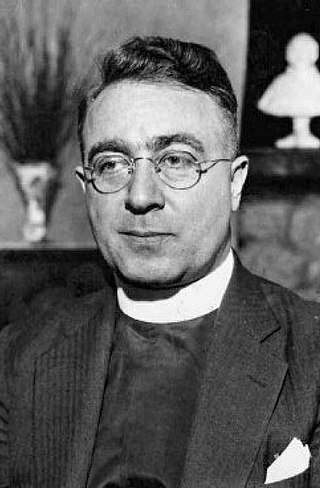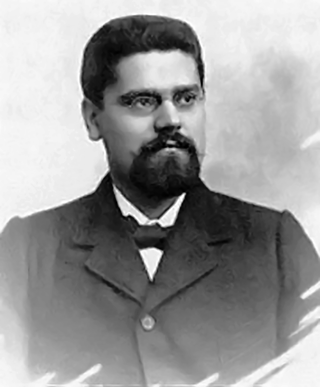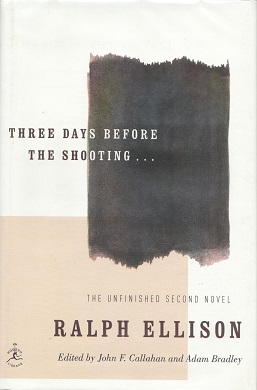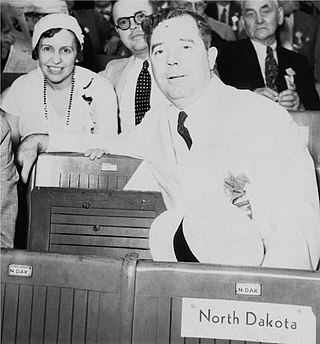
Simone Lucie Ernestine Marie Bertrand de Beauvoir was a French existentialist philosopher, writer, social theorist, and feminist activist. Though she did not consider herself a philosopher, and even though she was not considered one at the time of her death, she had a significant influence on both feminist existentialism and feminist theory.

Huey Pierce Long Jr., byname "The Kingfish", was an American politician who served as the 40th governor of Louisiana from 1928 to 1932 and as a United States senator from 1932 until his assassination in 1935. He was a left-wing populist member of the Democratic Party and rose to national prominence during the Great Depression for his vocal criticism of President Franklin D. Roosevelt and his New Deal, which Long deemed insufficiently radical. As the political leader of Louisiana, he commanded wide networks of supporters and often took forceful action. A controversial figure, Long is celebrated as a populist champion of the poor or, conversely, denounced as a fascistic demagogue.

Charles Edward Coughlin, commonly known as Father Coughlin, was a Canadian-American Catholic priest based in the United States near Detroit. He was the founding priest of the National Shrine of the Little Flower. Dubbed "The Radio Priest", he was one of the first political leaders to use radio to reach a mass audience. During the 1930s, when the U.S. population was about 120 million, an estimated 30 million listeners tuned to his weekly broadcasts.

Share Our Wealth was a movement that began in February 1934, during the Great Depression, by Huey Long, a governor and later United States Senator from Louisiana. Long first proposed the plan in a national radio address, which is now referred to as the "Share Our Wealth Speech". To stimulate the economy, the Share Our Wealth program called for massive federal spending, a wealth tax, and wealth redistribution. These proposals drew wide support, with millions joining local Share Our Wealth clubs. Roosevelt adopted many of these proposals in the Second New Deal.

"The Doctrine of Fascism" is an essay attributed to Benito Mussolini. In truth, the first part of the essay, entitled "Idee Fondamentali", was written by the Italian philosopher Giovanni Gentile, while only the second part is the work of Mussolini himself.
Alan Brinkley was an American political historian who taught for over 20 years at Columbia University. He was the Allan Nevins Professor of History until his death. From 2003 to 2009, he was University Provost.

Long Walk to Freedom is an autobiography credited to South African President Nelson Mandela. It was ghostwritten by Richard Stengel and first published in 1994 by Little Brown & Co. The book profiles his early life, coming of age, education and 27 years spent in prison. Under the apartheid government, Mandela was regarded as a terrorist and jailed on the infamous Robben Island for his role as a leader of the then-outlawed African National Congress (ANC) and its armed wing the Umkhonto We Sizwe. He later achieved international recognition for his leadership as president in rebuilding the country's once segregationist society. The last chapters of the book describe his political ascension and his belief that the struggle still continued against apartheid in South Africa.
My First Days in the White House is a book written by Huey Long. Called his "second autobiography" and published posthumously in 1935, it emphatically laid out his presidential ambitions for the election of 1936.
The Second New Deal is a term used by historians to characterize the second stage, 1935–36, of the New Deal programs of President Franklin D. Roosevelt. The most famous laws included the Emergency Relief Appropriation Act, the Banking Act, the Wagner National Labor Relations Act, the Public Utility Holding Companies Act, the Social Security Act, and the Wealth Tax Act.

Douglas Brinkley is an American author, Katherine Tsanoff Brown Chair in Humanities, and professor of history at Rice University. Brinkley is the history commentator for CNN, Presidential Historian for the New York Historical Society, and a contributing editor to the magazine Vanity Fair. He is a public spokesperson on conservation issues. He joined the faculty of Rice University as a professor of history in 2007.

The 1928 Louisiana gubernatorial election was held on April 17, 1928. Like in most Southern states between the Reconstruction era and the civil rights movement, Louisiana's Republican Party was virtually nonexistent in terms of electoral support. This meant that the Democratic primary held on January 17 was essentially the real contest to decide the governor, as winning the Democratic nomination would be tantamount to election as governor.

Three Days Before the Shooting... (2010) is the title of the long form edited manuscript of Ralph Ellison's never-finished second novel. It was co-edited by John F. Callahan, the executor of Ellison's literary estate, and Adam Bradley, a professor of English at the University of California, Los Angeles. The book was published on January 26, 2010, by Modern Library.

Revolutionary Suicide is an autobiography written by Huey P. Newton with assistance from J. Herman Blake originally published in 1973. Newton was a major figure in the American black liberation movement and in the wider 1960s counterculture. He was a co-founder and leader of what was then known as the Black Panther Party (BPP) for Self-Defence with Bobby Seale. The Chief ideologue and strategist of the BPP, Newton taught himself how to read during his last year of high school, which led to his enrollment in Merrit College in Oakland in 1966; the same year he formed the BPP. The Party urged members to challenge the status quo with armed patrols of the impoverished streets of Oakland, and to form coalitions with other oppressed groups. The party spread across America and internationally as well, forming coalitions with the Vietnamese, Chinese, and Cubans. This autobiography is an important work that combines political manifesto and political philosophy along with the life story of a young African American revolutionary. The book was not universally well received but has had a lasting influence on the black civil rights movement and resonates today in the Black Lives Matter movement.

The first 100 days of Franklin D. Roosevelt's presidency began on March 4, 1933, the day Franklin D. Roosevelt was inaugurated as the 33rd president of the United States. He had signaled his intention to move with unprecedented speed to address the problems facing the nation in his inaugural address, declaring: "I am prepared under my constitutional duty to recommend the measures that a stricken nation in the midst of a stricken world may require." Roosevelt's specific priorities at the outset of his presidency were getting Americans back to work, protecting their savings and creating prosperity, providing relief for the sick and elderly, and getting industry and agriculture back on their feet.

This bibliography of Donald Trump is a list of written and published works, by and about Donald Trump. Due to the sheer volume of books about Trump, the titles listed here are limited to non-fiction books about Trump or his presidency, published by notable authors and scholars. Tertiary sources, satire, and self-published books are excluded.

On Sunday, September 8, 1935, United States senator and former Louisiana governor Huey Long was fatally shot at the Louisiana State Capitol in Baton Rouge, Louisiana. Long was an extremely popular and influential politician at the time, and his death eliminated a possible 1936 presidential bid against incumbent Franklin D. Roosevelt.
Voices of Protest: Huey Long, Father Coughlin and the Great Depression is a 1982 history by Alan Brinkley of contemporary left-wing criticism of US President Franklin D. Roosevelt's New Deal Programs, focusing primarily on Huey Long and Father Charles Coughlin.
"Every Man a King" is a song cowritten by Louisiana's Governor and United States Senator Huey Long and Castro Carazo. Long was known for his political slogan "Every man a king," which is also the title of his 1933 autobiography and the catch-phrase of his Share Our Wealth proposal during the Great Depression. The song's lyrics include the lines "With castles and clothing and food for all/ All belongs to you". The song was co-written in 1935 by Huey Long and Castro Carazo, the band director of Louisiana State University, a former orchestra leader at the Roosevelt Hotel in New Orleans brought to LSU by Long himself.

Huey Long, the former governor of Louisiana, served in the United States Senate from 1932 until his assassination in 1935. A powerful figure, Long was integral in Franklin Roosevelt's 1932 Democratic Nomination and the election of the first woman, Hattie Caraway, to the US Senate. He was investigated for election discrepancies regarding the election of his friend John H. Overton, but no evidence of fraud was found. He proposed sweeping legislation, known as the Share Our Wealth plan, to end the Great Depression. Long often used filibusters to prevent or slow the passage of New Deal legislation.
Huey Long, governor of Louisiana and US Senator, has inspired or been portrayed in numerous cultural works. He has served as the template for fascistic politicians in novels like It Can't Happen Here (1935), A Lion Is in the Streets (1945), and All the King's Men (1946). The latter two were adapted into Oscar-winning films.

















